
 Flash News
Flash News
Accident at "Shkalla e Tujanit", truck overturns in the middle of the road, driver injured
Vlora by-pass, work delays and cost increases
Milan are expected to give up on the transfer of Granit Xhaka
Inceneratori jashtë funksionit, përfshihet nga flakët fusha e mbetjeve në Elbasan
Accident on the Lezhë-Shëngjin axis, one injured

Alfred Lela
I met Imer Mushkola at press conferences related to the media, in the Balkans or Europe. I already knew him from his comments in the Kosovar press. The meetings left me feeling good, as did his text.
A few days ago we 'met' in another form. Through the 'fame' he gained in several newspapers and portals of Tirana. Authors from the most diverse, from acquaintances to strangers, from those who know how to write to those who are obsessed with the text, rushed to crown Imer as "the missing journalist in Tirana".
At least that's what the headlines said. Not knowing Imer's deeds, I opened the first of them to understand that, in a TV interview in Kosovo of former Prime Minister Berisha, Mushkola had called him a 'killer'.
Other titles, accompanied by other texts, focused on this accusation to praise the colleague from Kosovo. Accompanied by a complaint: how, here in Albania, there are journalists who do not say such things to Berisha, but ask him questions and even gossip in front of him. There have been cases, of course, when public people, not journalists, have told Berisha that "my mom had fun", etc., etc., but one or several such do not illustrate all journalism.
But what hyperbolized Imer's bravery and journalism was the fact that most of those who praised him for this rare act, had themselves called Berisha "murderer" and "corrupt". They heroized their Kosovar colleague for the fact that, having called himself such for so long, they had hoped that they had retired the former prime minister, they had 'killed him politically', ie. Since he decided to return, more than with Berisha, they seem to resent the inefficiency of their political 'cure': removing someone through lynching charges.
As a reminder, Berisha has never lacked such epithets. Some journalists have told him to live in the TV studio. Everyone is in good health, just as anti-Berisha as ever. Make a Mustafa Nanos wire, for example.
Berisha's lynching has kept many journalists busy in Albania, and it is time for them to return to the work of the old refrain. But that is not the purpose of this article. What should be noted is that it does not make you a good journalist to be called the 'killer' of a politician. This is not the job of a journalist. He must bring facts and have them based on sources and evidence so that they can be called facts. When there is no evidence, but he is making comments or giving opinions, it is good that he never overcomes the limitations, neither of craft nor of ethics.
Labeling politicians is not that it hurts them, quite the opposite: it can victimize them and, in addition, line up even more fanatics behind it. It is even the inflation of vague accusations that helps politicians commit atrocities and stay in office. There is no saving in the accusations exchanged between politicians or even between analysts who support one side or the other. What the unsubstantiated accusations, in fact, have done, is the spectacle for the evening shows, but also the perversion of the public. In a public space, where everyone is labeled as 'murderer' and 'thief', it is difficult, if not impossible, for the honest to stand out. That is why mud is a transversal and widely used instrument.
This applies, of course, to Rama's lynchers as well. Paradoxically, those who cursed him more helped him more. In the end, the journalist is not in his job to formulate accusations but to find clues and relate parts of events and contexts when analyzing.
In the end, I am sure that the 'heroism' of Tirana, which is more than praise for a diversion for a political enemy, will not push Imer towards abandoning the journalist's tools. Charges are not analysis. They are not even a fact, as long as they are not followed by a test.
Latest news








Golem and Qerret without water at the peak of the tourist season
2025-07-01 21:09:32

Euractiv: Italy-Albania migrant deal faces biggest legal challenge yet
2025-07-01 20:53:38
BIRN: Brataj and Fevziu victims of a 'deepfake' on Facebook
2025-07-01 20:44:00

Vlora by-pass, work delays and cost increases
2025-07-01 20:24:29



Milan are expected to give up on the transfer of Granit Xhaka
2025-07-01 19:41:25


The silent but rapid fading of the towers' euphoria
2025-07-01 18:58:07
Donald Trump's daughter says 'goodbye' to June with photos from Vlora
2025-07-01 18:48:47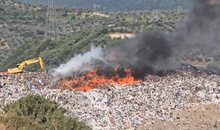

Tirana vote recount, Alimehmeti: CEC defended manipulation
2025-07-01 18:15:05

Left Flamurtari, striker signs with another Albanian club
2025-07-01 17:43:14
Accident on the Lezhë-Shëngjin axis, one injured
2025-07-01 17:19:35
June temperature records, Italy limits outdoor work
2025-07-01 17:03:15

Meet Kozeta Miliku, named one of the top five scientists in Canada
2025-07-01 16:32:12
"Arsonist" arrested for repeatedly setting fires in Vlora (NAME)
2025-07-01 16:29:45
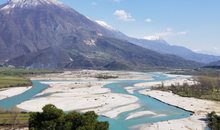
The ecological integrity of the Vjosa River risks remaining on paper
2025-07-01 16:09:40
Heat Headache/ Causes, Symptoms and Measures You Should Take
2025-07-01 16:01:13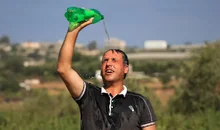
UN: The world must learn to live with heat waves
2025-07-01 15:54:50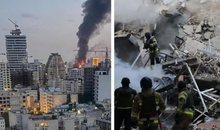
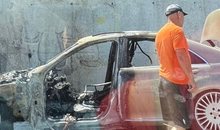
Three cars collide in Tirana, one of them catches fire
2025-07-01 15:38:16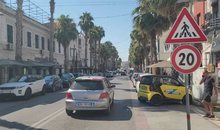

Shehu: Whoever doesn't want Berisha, doesn't want the opposition 'war'!
2025-07-01 15:19:20
Berisha requests the OSCE Assembly: Help my nation vote freely
2025-07-01 15:11:46
Be careful with medications: Some of them can harm your sex life
2025-07-01 15:00:32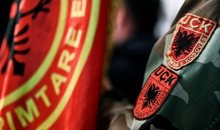
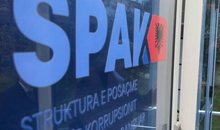
'Golden Bullet'/ Lawyers leave the courtroom, Altin Ndoc's trial postponed again
2025-07-01 14:44:52
EU changes leadership, Kosovo in a number of places
2025-07-01 14:40:01
Should we drink a lot of water? Experts are surprised: You risk hyponatremia
2025-07-01 14:30:20
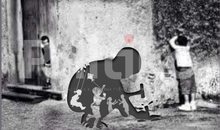


Lëpusha beyond Rama's postcards: A village that is being silently abandoned
2025-07-01 13:41:56
Scorching temperatures in France close the Eiffel Tower
2025-07-01 13:29:35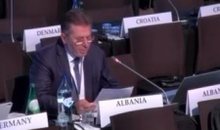
Media: China, Iran and North Korea, a threat to European security
2025-07-01 13:20:12
Albania drops in global index: Less calm, more insecure
2025-07-01 13:09:35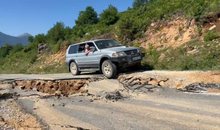
Road collapses, 5 villages in Martanesh risk being isolated
2025-07-01 13:03:04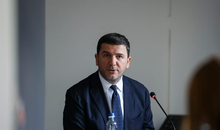

Këlliçi: Opposition action to be decided in September
2025-07-01 12:48:49
Four tips for coping with the heat wave
2025-07-01 12:38:53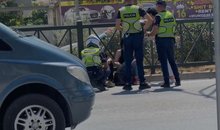
Car hits pedestrian on Transbalkan road
2025-07-01 12:27:09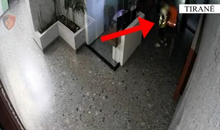
Authors of 9 robberies, Erjon Sopoti and Abdullah Zyberi arrested
2025-07-01 12:15:56

He abused his minor daughter, this is a 36-year-old man in custody in Fier
2025-07-01 11:50:34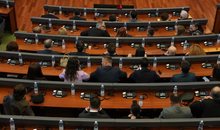
The constitution of the Kosovo Assembly fails for the 40th time
2025-07-01 11:40:08

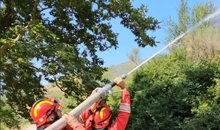


EU confirms support for the Western Balkans
2025-07-01 10:50:45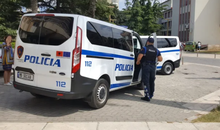
Serious in Fier! Father sexually abuses his minor daughter
2025-07-01 10:32:33
One year since the passing of the colossus of Albanian literature, Ismail Kadare
2025-07-01 10:25:26


They supplied the 'spaçators' with drugs, two young men are arrested in Tirana
2025-07-01 09:54:09
Europe is "scorching", how dangerous are high temperatures?
2025-07-01 09:48:56


Nigel Farage in Albania: but why?
2025-07-01 09:13:12
Xama: The "Partizani" dossier is quite weak and without facts!
2025-07-01 09:04:47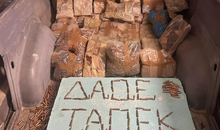

Foreign exchange, the rate at which foreign currencies are sold and bought
2025-07-01 08:35:39
Fabricators again warn of factory closures and job cuts
2025-07-01 08:21:30
Horoscope, what do the stars have in store for you today?
2025-07-01 08:08:59
Scorching hot, temperatures reaching 40°C
2025-07-01 07:57:12
Morning Post/ In 2 lines: What mattered yesterday in Albania
2025-07-01 07:42:59
Recount after May 11, Braho: I had no expectations for massive vote trafficking
2025-06-30 22:54:18

Second hearing on the protected areas law, Zhupa: Unconstitutional and dangerous
2025-06-30 22:18:46



Israel-Iran conflict, Bushati: Albanians should be concerned
2025-06-30 21:32:42

Fuga: Journalism in Albania today in severe crisis
2025-06-30 21:07:11
"There is no room for panic"/ Moore: Serbia does not dare to attack Kosovo!
2025-06-30 20:49:53

Temperatures above 40 degrees, France closes nuclear plants and schools
2025-06-30 20:28:42
Lavrov: NATO is risking self-destruction with new military budget
2025-06-30 20:13:54
Turkey against the "Bektashi state" in Albania: Give up this idea!
2025-06-30 20:03:24

Accused of sexual abuse, producer Diddy awaits court decision
2025-06-30 19:40:44


